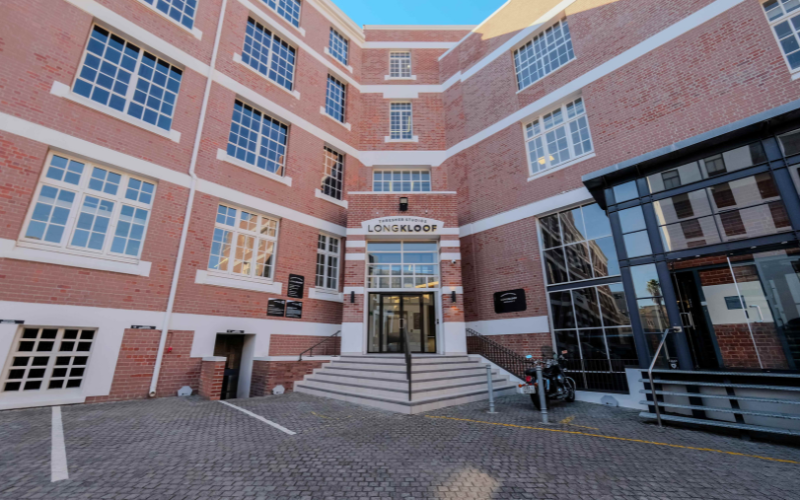The MSCI South Africa Green Annual Property Index for 2024 continued to reinforce the investment rationale for sustainable, resource-efficient real estate.
Published annually since 2016 in collaboration with the Green Building Council of South Africa (GBCSA) and sponsored by Growthpoint Properties (JSE: GRT), the index offers an independent and globally aligned assessment of how green-certified properties compare to their non-certified counterparts in terms of investment performance.
For 2024, the index showed that green certified Prime & A-grade offices produced a total return of 10.1% which was 120bps above that of non-certified office assets of a similar quality during the year. Since the index’s launch in 2016, green-certified offices have outperformed non-certified assets by a cumulative 28.2%, delivering superior capital growth and operational resilience.
Timothy Irvine, Head of Asset Management: Offices at Growthpoint, which is at the forefront of green-building certification in South Africa, comments, “The 2024 MSCI South Africa Green Annual Property Index reaffirms the investment edge of green-certified commercial real estate. The long-term outperformance of green certified offices signals growing occupier and investor preference for sustainable, resource-efficient real estate and reinforces the strategic competitiveness of portfolios with a strong green building footprint.”
Published in April 2025, the 2024 index covered a sample of 242 prime and A-grade office properties with a combined value of R54.7 billion, including 122 green-certified buildings. Reflecting the growing momentum of green certification beyond the office sector, the index also captured the performance of 33 green-certified retail properties.
“The index has shown over several years that green-certified offices typically have better investment returns than non-certified offices. This year’s expansion to include the retail sector is exciting for us and reflects our commitment to supporting the drive for green across all building typologies. Through this expansion, we’re looking forward to tracking these results, and bringing new insights to market,” says Georgina Smit, Head of Technical, GBCSA
2024 was another year of outperformance for green certified property
This outperformance of green-certified Prime and A-grade offices was driven by a higher capital growth on the back of a 34% higher gross income per square meter, a significantly lower operating cost to income ratio (39% vs 46%) and a 30bp lower capitalisation rate.
For green certified retail property, the outperformance was similar in 2024. Green certified retail property delivered a total return of 13.2%, 130bps higher than that of non-certified retail with the outperformance driven by an 80bp lower capitalisation rate and a 18% higher net operating income per square meter. Similar to the green office sample, certified retail properties also boasted a lower cost to income ratio of 41% compared to the 44% of its non-certified peers.
Green certified offices also had a lower discount rate, driven in part by a lower vacancy rate (11.1% vs 14.8% for non- Green certified prime and A-grade offices) – reinforcing the premium placed on green office accommodation by occupiers and valuers alike.
Long term outperformance
Since the index’s inception in 2016, prime and A-grade green-certified offices have consistently delivered stronger capital growth than non-certified office properties each year, underscoring the resilience and value proposition of sustainable buildings. Green-certified office assets have outperformed their-noncertified counterparts by a cumulative 28.2%.
While the office sector has led the way in the adoption of green certification, the performance advantage is becoming increasingly evident in the retail segment as well—where a similar return differential emerged in 2024, signalling broader market recognition of the investment benefits of sustainable real estate,
“After nine years of consistent outperformance both on valuations and income, there can be no doubt about the fact that certified properties deliver higher returns to investors. The next step in this journey is to show that certified properties better mitigate Climate Risk and MSCI is well equipped to do that,” says Eileen Andrew from MSCI.
Lisa Reynolds, GBCSA CEO, adds, “Our longstanding partnerships around this index are a deep and a solid real investment into providing the property sector with the data and confidence required to build the investment case for green buildings. For some, the question was “Why should I invest in making my property portfolio green?”, now it becomes, ‘Why would I NOT invest in green?’.”
As a leader in sustainable commercial property, Growthpoint holds one of South Africa’s largest and most varied portfolios of green-certified buildings. These assets not only lower the company’s carbon footprint but also support long-term climate resilience central to its ESG strategy. With a clear goal to reach carbon neutrality across its portfolio by 2050, Growthpoint continues to lead in sustainable real estate.
Chief Operating Officer Engelbert Binedell says data from MSCI and the GBCSA is key to shaping Growthpoint’s approach. “We use this data to benchmark performance, refine energy and net-zero targets, and realise the full financial and environmental value of green certification. This data-driven strategy ensures steady progress while meeting the expectations of investors, tenants and society for a low-carbon future.”
Download the MSCI South Africa Green Annual Property Index 2024 here.
The webinar recording from 1 July will be shared in due course. Watch this space!
Image: Longkloof – Growthpoint Properties owned, 4-Star Green Star Existing Building Performance v1.1 rated, Prime, A-Grade offices in Gardens, Cape Town.



